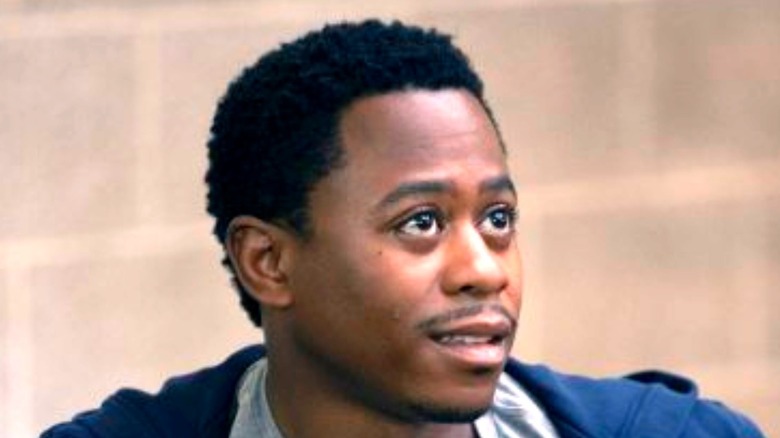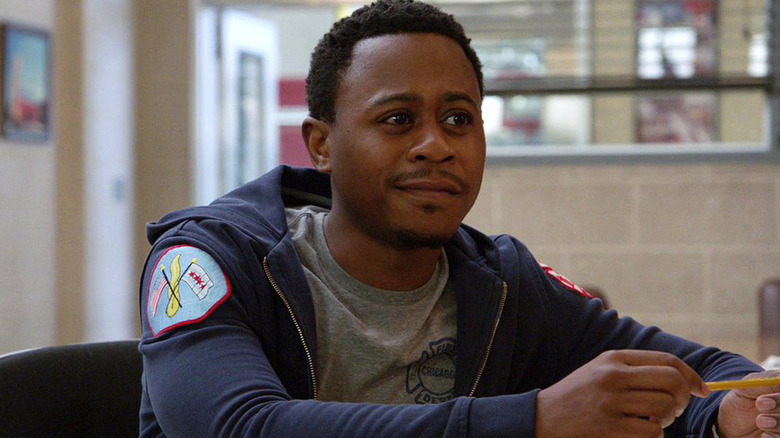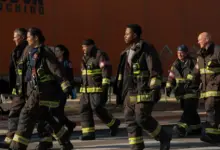Chicago Fire’s Daniel Kyri Opens Up About Coming Out As Gay On The Show

In recent years, NBC has become home to a legitimate cinematic universe — or at least the TV equivalent of one. “One Chicago” refers to an interconnected lineup of TV series all about government workers in Chicago, Illinois. “Chicago Med,” for example, is a drama about a group of doctors and nurses working the emergency room at a Chicago hospital. While its spinoffs have become successful in their own right, “Chicago Fire,” which started it all, remains on the air and as popular as ever, and is second in viewership only to “Chicago Med” (via The Hollywood Reporter).
Since its debut in 2012, “Chicago Fire” has aired for 10 seasons in total. Despite its considerable length, however, the show’s producers remain open to incorporating new characters and retiring series mainstays rather than simply relying on old favorites. Darren Ritter, portrayed by Daniel Kyri in his first recurring TV role (via IMDb), is one such case, having been introduced in Season 7 before becoming a member of the series’ central cast in Season 9.
NBC News interviewed Kyri about his recently-upgraded role on “Chicago Fire,” highlighting, in particular, a moment in which Ritter comes out as gay in the show’s eighth season as a notable landmark in his tenure on the show.
Kyri appreciates how Chicago Fire developed Darren Ritter

Prior to joining the cast of “Chicago Fire,” Daniel Kyri, who identifies as queer, co-created “The T,” a web series exploring the dynamics of a relationship between a transgender woman, portrayed by co-creator Bea Cordelia, and a queer Black man, portrayed by Kyri. “Because my web series felt like a kind of coming out,” Kyri said, commenting on how he felt after learning about the “Chicago Fire” writers’ plans for Ritter, “this historic moment in the context of the ‘One Chicago’ world, for this Black, male character to come out as gay in this blue-collar, first-responder world, I wanted to do it justice.”
Kyri positively characterized the moment in which Ritter reveals his sexual orientation as a “non-event.” Rather than treat the moment as some sort of dramatic reveal, Ritter, rather, simply responds to his lieutenant asking if he has a girlfriend by responding that he instead has a boyfriend.
“Moving those narratives — of the queer person, the Black person, the Asian person, the femme character — from the margins, from the sidelines, and making them the center of the narrative is so very important,” Kyri told NBC News. “It gives anyone watching — no matter what age, no matter what background — an opportunity to see a possibility for themselves, a possibility for how they might move through the world.”



